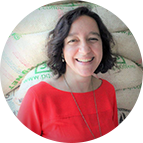
As the world lurched to halt and nations and people began to react to the world pandemic of COVID-19, the impacts were felt almost immediately across numerous sectors of commerce; from international shipping, local businesses, to even the price of crude oil. Our entire world changed overnight and will continue to change even years after COVID-19 passes.
And like everything, the coffee industry is not immune to this change either, and perhaps, even more so due to its unique and intimate relationship between coffee farmers, suppliers, roasting houses, cafes, and coffee drinkers. We wanted to go beyond our limited horizon of understanding and reach out to gauge how the rest of the industry is reacting and responding to one of the most important issues in our lifetime.
We reached out across the industry, from bloggers, to roasting houses, to organizations dedicated to uplifting coffee farmers to understand how the micro shocks became the macro effects, of how the small ripples become large waves. And perhaps in doing so, we can build better connections between us, share in each other’s struggles, celebrate each other’s victories no matter how big or how small.
Just a small note before reading, we have structured this post in a way that reflects COVID’s impact from an individual level to a larger, more contextual level to provide a view that moves from the individual experience to a larger macro view. Most comments have been kept unedited for full accuracy in representing opinions and lived experiences unless edited to provide additional context.
Shabbir Nooruddin
“Getting coffee from the plant to your cup is a huge supply chain and there is potential for lots of disruption along the way, from farmers not being able to grow and process, to logistics companies not being able to ship, and finally, to local coffee roasters not having enough staff to roast! Fortunately, coffee roasting at a local level can be done with a reasonable amount of social distancing and with minimal staff, and thanks to the internet and the Post Office(Long Live the Post Office!) people can still get their coffee. One piece of advice for consumers would be to order a little bit in bulk so you don't have to keep ordering, and you have enough time from when you place an order to when it actually reaches you as that time may be a bit delayed due to current circumstances. So if you usually order a 250 gram bag, order a 1 kg bag instead.”
Shabbir is a coffee blogger who’s passion for coffee culture is documented through his website Coffee in My Veins
Amit Ahuja
“Covid-19 or Coronavirus, a name that has now a deep penetration all over the world. Everything has got hurt and the life won’t be the same as it was before. Our coffee industry is also suffering, directly or indirectly. Physical markets are almost closed. The online stores are striving hard to deliver, but still, things are bad. Millions of coffee shops are closed due to lockdown and this has affected the sales by lot. For now, the only thing everyone can do to help the supply chain continue is, don’t stop buying coffee for your home. Though it won’t cover a huge, but at least it can give people something to survive on.”
Amit Ahuja is a coffee blogger who reviews different coffee products, from espresso makers to coffee beans on his website Fried Coffee

Brandon Quillen
"A shift we saw immediately was about a 70% increase in people coming to our site to read articles about how to make coffee drinks and espresso at home. We also saw a significant uptick with our referral partners where people go to buy their coffee online, including coffee subscriptions where people get fresh coffee delivered to their home on a monthly basis.
We spoke to some of our local coffee shops as well who are currently getting hit hard with their wholesale business, since restaurants aren't currently open for dine-in customers. However, they were seeing the same trend where more and more people were buying their bagged coffee to take home and buying coffee online that they could roast in their store and ship out. I'd expect when local shops are open, many people will come back into the stores for their old routine.
However, no doubt many people during Covid-19 have purchased a coffee subscription or bought coffee online for the first time. I'm sure many of those people will enjoy the convenience of that and continue buying and brewing more coffee at home, even after life has returned to normal."
Brandon Quillen is the head of Roasty Coffee, a website devoted to all things coffee.
Lily Kubota
“This is a big and important question, but a tough one to answer. The situation is changing every day and it is very difficult to say what the long-term impact will be on the industry and craft roasters specifically. We do know that the coffee industry is resilient and has proven capable of weathering many storms over the centuries. Coffee companies around the world have had to adopt new protocols and are doing their best to meet the needs of their customers during this pandemic. Others, unfortunately, have had to close their doors permanently—and the ripple effect of this is being seen across the sector as workers now must navigate the waters of unemployment. As a community, now is the time to support the most vulnerable among us and hope that we can come out the other side of this together.”
Lily Kubota is the Managing Editor at Roast Magazine, an excellent bi-monthly magazine dedicated to the art, business, and science of coffee.
Evan Gilman
“I’d say that it’s clear that the industry has taken a hit. Cafés are closing, workers are being furloughed or let go, and we’re seeing some of our closest friends in the business go through some very hard times. But it’s important to stay positive when we can! People are certainly still drinking coffee, and we are seeing people take an even greater interest in home roasting. If nothing else, this is a great time to learn. You’ve always wanted to roast coffee yourself? Now is the perfect time. You’re a larger roaster that’s still operational, and you’ve always wanted to support producers? Seize the day!"
Evan Gilman is the Creative Director at The Crown: Royal Coffee Lab & Tasting Rooming Room at Royal Coffee, a family owned and operated importer of green coffee beans.

Dominic Caruso
“We have always tried to create and maintain an extremely diversified customer base. Never have all your eggs in one basket so to speak. I have always attempted to keep our customer based evenly split between Foodservice (out of home consumption) and Retail (in home consumption) and within those two categories have a mix of lower volume, higher margin accounts and higher volume, lower margin accounts. This was always meant to protect us from strong vs. weak economies. Strong economy, more discretionary income, out of home consumption does better and vice versa. During this shutdown period, this business model has allowed us to keep enough business to maintain about 65% of our normal volume.
We used this slow down to evaluate our company, cut costs and ultimately we will come out of this a leaner, more efficient and a stronger organization for it. Some of our competitors, many of whom were as much as 90% foodservice have done massive layoffs and are abandoning accounts they no longer want to service. I am confident there will be opportunities for us to acquire new customers as a result of some of our competitors not surviving this crisis, or looking to do business much differently when this is all over.”
Dominic is the owner of Caruso Coffee, a premier coffee roasting company based out of Ohio.
Ron Walters
“Stay-at-home orders in place at the time of the survey applied to over 90% of the U.S. population. Both anecdotally and based on survey results, these restrictions dramatically changed coffee consumption patterns by consumer channel. We know from speaking with roasters and advertisers that many cafes are closed or offering takeout only. Foot traffic is down dramatically, and consumption at offices and schools is near zero.
Not surprisingly, the amount of coffee being prepared and consumed at home has increased significantly. More than five out of ten respondents report that they are primarily purchasing coffee online from coffee roasters or coffee-focused retailers. An additional one in ten are ordering online through grocery delivery services. Several readers report taking up roasting at home.”
Ron Walters is the Co-founder at coffeereviews.com and conducted a readership survey and the results were telling.

Joanna Furgiuele – Director of Partnerships & Strategic Initiatives
Coffee Kids, a program of Hanns R. Neumann Stiftung NA, is dedicated to empowering young coffee farmers to provide a means to creating thriving (and sustainable) businesses. In a recently issued newsletter that touched upon how COVID-19 was impacting young farmers.
“Recognizing that crop cycles continue despite the coronavirus, we are reaching these young farmers with information and personalized coaching on how to adapt their businesses, while safeguarding their health. Individualized outreach and continuous communication takes additional time on top of necessary ongoing services, and so we are asking for your generosity and support to help young farmers during this uncertain time.”
Of note within the newsletter was Beatriz Mendosa, a Guatemalan coffee grower, who’s concerns were particularly insightful to the “on the ground nature” the pandemic was having for local farmers.
“COVID-19 has generated frustration and has paralyzed communities completely. However, people are aware of the reality and we are pushing to move forward once this is over”
We reached out to Joanna Furgiuele, Director of Partnerships & Strategic Initiatives and manager of the Coffee Kids program, for more clarification to see if Mendosa’s sentiments were echoed elsewhere. Mrs. Furgiuele highlighted the differences in governmental regulation as “so many coffee farmers and entrepreneurs belong to the informal economy. Due to all the restrictions it is difficult for farmers to trade their products and to operate, so there are a lot of economic consequences for them. We are sure that food security will be an issue, and so in some regions we are starting some diversification strategies in order to address the topic in the short term (production of beans, corn) and long term (avocados, plantains, and other crops).”
Joanna Furgiuele is the Director of Partnerships and Strategic Initiatives at Coffee Kids, an organization devoted to uplifting young coffee farmers around the world.
As such, the continued relationships between Coffee Kids and young farmers has been hopeful with “direct conversation with youth through individual phone calls as well as group text messaging, often through youth committees that we have set up with our youth participants in various communities” and working on “virtual classroom options in areas where youth have internet access at home, or short video trainings and flyers for youth and farmers that may not have easy access to the internet.”
CONCLUSION
While the COVID pandemic certainly isn’t the first storm the coffee industry has had to weather, it certainly is the biggest challenge that the coffee industry has faced in recent years, especially given our globalized world, and from the looks of it, this isn’t going to change soon. Thus, the overall industry response has seen a massive shift to online retail as more and more people begin to work remotely, and the daily rhythms of their lives are changing.
As noted, the demand for coffee has not subsided. Many more coffee drinkers are now shifting towards home roasting and home brewing as they can no longer go to their local cafes. Thusly, subscription services, retailers, and other coffee brewers have seen dramatic increases.
The struggle that has emerged, however, is two-fold. The first is to maintain steady supply lines given that most businesses have had to trim down on staff to limit contagion spreading. The second is the economic damage caused by this trimming to local economies as brick and mortar businesses struggle to pay rent and furlough workers as most economic activity has shifted towards online sales.
Unfortunately, this situation is predicated upon the even more precarious unequal exchange of social and economic circumstances that local farmers are facing. Due to the informal economic situation that local farmers exist in and the overall slowdown of global trade, farmers are faced with a situation that puts them in a tough situation; growing a cash crop (coffee) that allows their families to be fed and paradoxically continuing to a grow a crop that no longer offers the same financial security coffee once held, forcing farmers to make the decision of whether to continue growing coffee and face food and housing insecurity or switch to growing other crops to feed their families but no longer being able to financially support their families.
However, as the world begins to emerge out of the pandemic, businesses begin reopening, and country borders begin loosening, the flow of coffee will begin again, allowing the shifts to either subside and continue as consumer behavior may have changed in the interim, but at this moment, it’s a bit too early to tell.
That being said, we want to thank all those who lent their professional and personal opinions on how not only they are adapting, but how the industry has adapted in the meantime as well. Without their tireless work, our morning cup of coffee wouldn’t be the same.